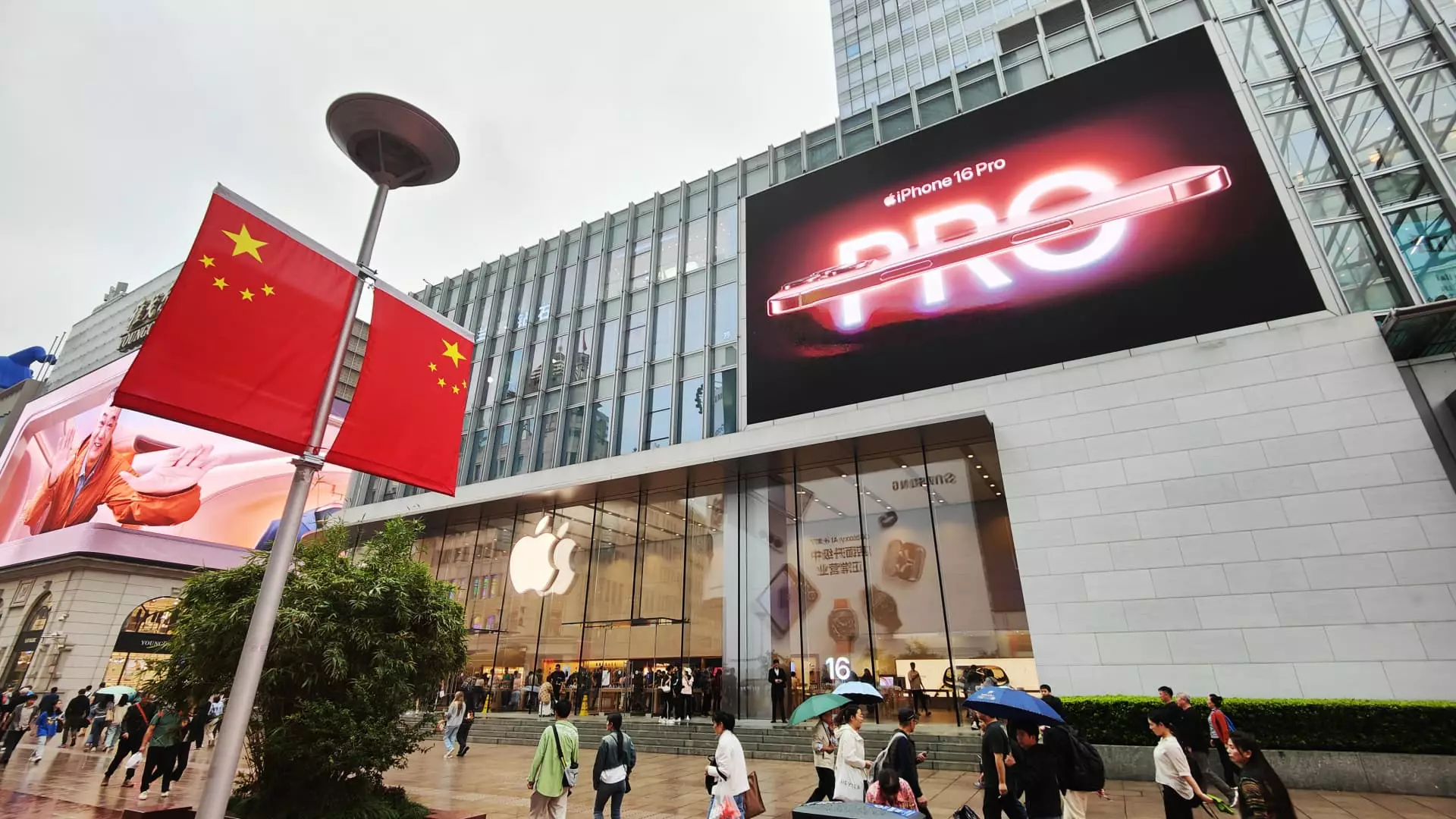Recent data has revealed a dramatic decline in the sales of foreign smartphone brands in China, amplifying the challenges faced by major players like Apple. As reported by the China Academy of Information and Communications Technology (CAICT), foreign mobile phone shipments in China plummeted to 3.04 million units in November, marking a staggering 47.4% drop compared to November 2022, and a 51% decline from October of the same year. This sharp downturn raises questions about the long-term sustainability of foreign brands in a market that is becoming increasingly dominated by local competitors.
Apple, which reportedly accounts for a substantial portion of foreign smartphone sales in China, finds itself in a precarious position as local brands continue to gain traction. The return of Huawei to the forefront of the smartphone market is particularly noteworthy. After facing severe challenges due to U.S. sanctions that crippled its handset business, Huawei has made a powerful comeback with the launch of high-end smartphones that resonate well with Chinese consumers. According to IDC data, Huawei’s growth outpaced Apple’s in the third quarter of 2023, highlighting the fierce competition that exists in this landscape.
Despite introducing the new iPhone 16 series, which promises enhanced functionality through advanced AI features, Apple’s initiatives are being hampered by regulatory hurdles. The anticipated Apple Intelligence software, designed to elevate the user experience, is not yet accessible in China due to the complex regulatory environment surrounding artificial intelligence in the nation. This delay allows domestic competitors to leverage their own AI capabilities, gaining further advantage in the market. As local firms integrate popular AI features into their devices, Apple risks falling behind unless it can navigate these regulations and innovate quickly.
Recognizing the critical importance of the Chinese market, Apple CEO Tim Cook has made frequent visits to the country in a bid to foster relationships with local firms and explore potential partnerships for Apple Intelligence. This level of engagement underscores how vital the Chinese consumer base is for Apple’s overall strategy. In an effort to reignite interest in the iPhone 16, Apple is also introducing discount promotions coinciding with the upcoming Chinese New Year holiday, a strategy aimed at boosting sales during a pivotal time for consumer spending in the region.
The current landscape of smartphone sales in China illustrates mounting pressure on Apple as it grapples with fierce local competition and regulatory obstacles. While the company’s historical brand loyalty and innovation have traditionally placed it at an advantage, the shifting dynamics of the Chinese market pose significant risks. As Huawei and other domestic rivals grow in prominence, the future of Apple’s operations in China will depend on its ability to adapt quickly, innovate, and navigate the complex regulatory environment while maintaining consumer interest. The coming months will be critical for Apple’s efforts to reclaim its market share in one of the world’s most competitive smartphone arenas.

